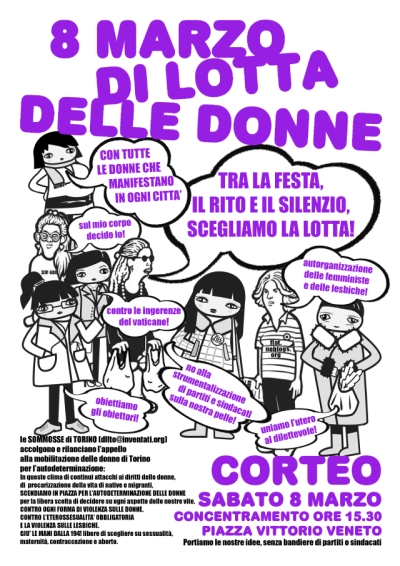de citit: “leapsa: ziua femeii, ziua barbatului” de jo @ the essential bystander [link transmis de cristina]
din arhive:
– un post de anul trecut in care propuneam ca daca tot ne intereseaza sa cream zile-de-militare-pentru-dreptul-barbatului-de-a-nu-lasa-capacul-de-la-wc-si-alte-trasaturi-masculine-definitorii de ce nu facem si o “zi a barbatului de origine europeana” sau “o zi a dictaturii comuniste” si tot felul de alte “zile” hilare prin care sa sarbatorim regresul si backlash-ul impotriva miscarilor anti-opresiune?! e ce zice si jo si e bineinteles un punct foarte simplu. (dar ma indoiesc ca cei vizati de leapsa vor pricepe ceva.)
– si inca un post in care eu chiar celebrez o “zi a barbatului” si ma solidarizez cu barbati care au nevoie de sustinere pentru ca pricep si rezista presiunilor patriarhale (si reclamelor la bere s.a.m.d.).

